All you Need to Know to Officiate Your Best Friend’s Wedding
Discover all you need to know to officiate your best friend’s wedding. Find out why ‘By the power vested in me…’ are words you will never forget.
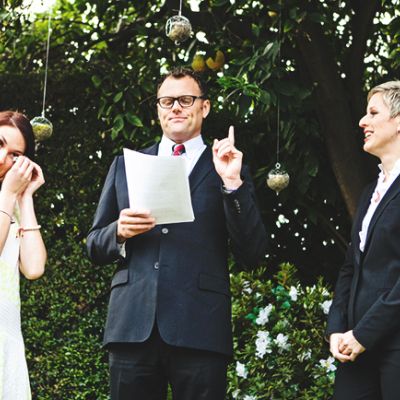
In order for a marriage to be legally binding, the wedding ceremony itself must include two key elements. Discover all you need to know to officiate your best friend’s wedding.
So, you’ve been asked to officiate your best friend’s wedding. Definitely on fleek. To be entrusted by one’s best friend to take the sacred role of a priest or judicial official in his or her wedding is a big deal. Forget fear and anxiety, doing the honor is a full and rewarding experience.
Still, you may want to take a quick look at what you need to know and how to prepare to officiate your best friend’s wedding.
How do you Become Ordained to Officiate your Best Friend’s Wedding?
Definitely, you need to be a legal officiant to officiate your best friend’s wedding. Each state has its own say on who can and cannot officiate marriage ceremonies; even legalities in individual municipalities within states vary as well.
Overall, it’s a simple process that can take place online. But most states do require marriage officiants to be over 18 years old.
Next, call the registrar in the township hosting the wedding and find out the criteria for legality. The internet is your buddy. Check online to get the rules and policies that apply to your state.
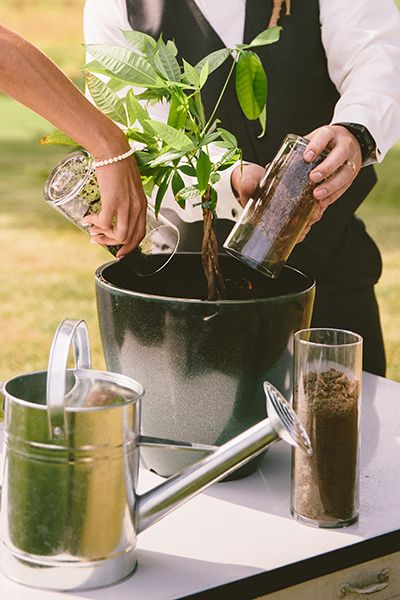
Be creative when officiating a friend’s wedding. This alternative unity ceremony will help love grow.
Find out What the Couple Wants
Although you are officiating your best friend’s wedding, it is still their wedding. Have a sit-down with the couple you are marrying and hash things out. Ask them if they can provide a basic outline you could later personalize. You don’t want to ruin their moment by deviating from the tone and vibe they have in mind.
Are there specific traditions to incorporate, or family members to recognize? Are certain religious rites included? Is it going for to be an offbeat and informal affair, or a serious and important tribute?
Moreover, some couples like surprises when their best friend officiates their wedding, while others want veto power on every detail of the ceremony. Regardless of their preference, know their stance on risqué jokes or references. You might know your soon-to-be-wed pals to the letter, but never jump to conclusions or make assumptions.
Ask, take note, and make their day lit.

Don’t forget about the send off part of the ceremony. Use cute prints or newspaper to make the cones and your wedding colors for the confetti.
Research and Prepare to Officiate your Best Friend’s Wedding
Starting earlier—weeks or months before the wedding—will keep you in control. Study wedding clips (similar to the one you’ll be officiating) and take note of length, specific jokes, structure, traditions, etc.
In preparing your delivery, collect memorable materials specific to the couple, and enlist the help of an editor if necessary. If the couple doesn’t want surprises, run your final wedding script by them and get their veto.
Don’t Forget to Plan a Rehearsal
Rehearsals are a must-have. You wouldn’t dare going in blind when officiating your best friend’s wedding.
Traditionally, the officiant heads the rehearsal. Sometimes the wedding planner leads everything. Be sure to talk with the couple to figure out whether a wedding planning play might come into play.
And if you are assigned to plan the rehearsal, plan the ceremony to a tight perfection. Is it an overwhelming job? Yes. Humbling and touching? Of course. So you really don’t want to blow it. Thankfully, rehearsals help every party know what is required of them and when.

You need to be a legal officiant to officiate your best friend’s wedding, but it will be well worth the effort. Rancho Palos Verdes from The Brandon Kidd Photography.
How to Officiate your Best Friend’s Wedding: The Order of Events
Just in case planning the rehearsal is absolutely your responsibility, here’s the usual order of events: the procession, opening remarks, the charge to the couple, the exchange of vows, the exchange of rings, the pronouncement of marriage, the kiss, the closing remarks and the recessional.
The charge to the couple is where you remind the couple about their duties and roles in marriage.
The recessional refers to the formal exit of the bridal party, just as the procession refers to its entrance. The order is slightly different according to the faith, so make sure you research it in advance.

‘By the power vested in me…’ and ‘I now pronounce you’ will never feel so wonderfully tense and palpable.
How to Officiate Your Best Friend’s Wedding: Make it Legit
For a marriage to be legally binding, the ceremony must include two key elements. The intent and the Pronouncement. The intent is where you ask the couple if they take this person to be their lawful wedding partner. The Pronouncement is where you get to say “I now pronounce you.” Make sure these two elements are included in your wedding ceremony script!
After performing the ceremony, comes the most important paperwork: filling out the marriage license. Properly and fully fill the application and make sure you bring it to the wedding. The license should be returned promptly to the correct authority after the ceremony to ensure that it doesn’t expire. Marriage licenses tend to have a 30 to 60 day validity. This is the officiant’s responsibility in the majority of the states. You can mail the license, but dropping it off in person is preferred in order to avoid any unforeseen complications.
Photo Gallery that will Inspire You to Officiate your Best Friend’s Wedding
Now you might want to start ruminating on details—what you will be holding the procession, pulpit logistics, microphone, binder, etc. Relax. Draft a delivery that is intimate and humorous. And practice your near-final draft in front of a small audience before D-day.

Although you cannot officiate your best friend’s wedding at City Hall, get inspired by this fab idea!
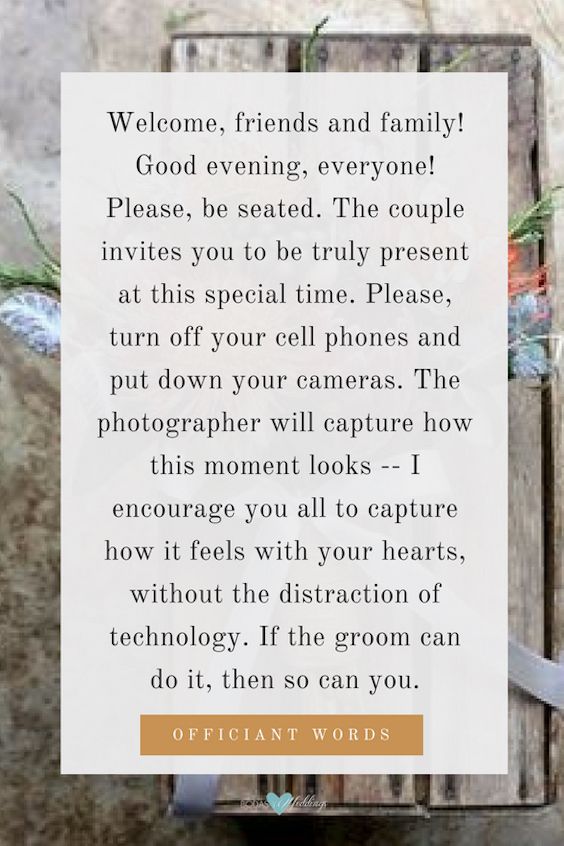
I love the idea of an unplugged ceremony. People shouldn’t be ruining somebody else’s special moment. They do turn off the phone at the movies. amiright?
Discover More Stunning Wedding Ideas
Photo Credits: Offbeat Bride, Bridal Guide Magazine, Scottish Kilt, Fabmood, refinery29, islandminister, Brides, newweddinginspirations, Ruffled, Once Wed



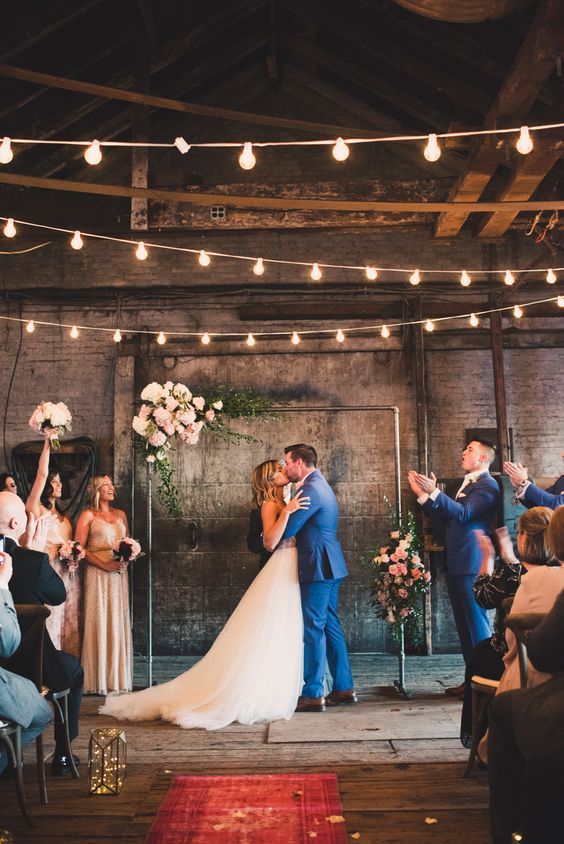
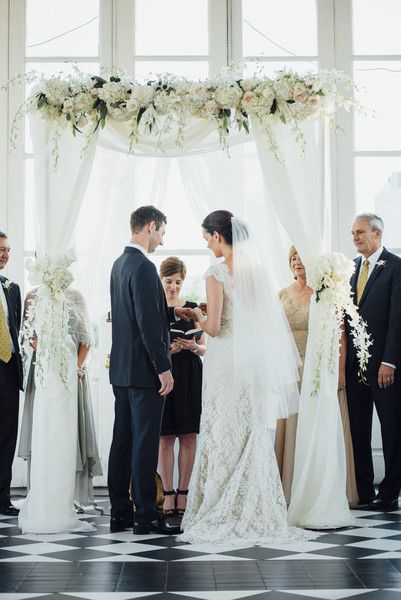








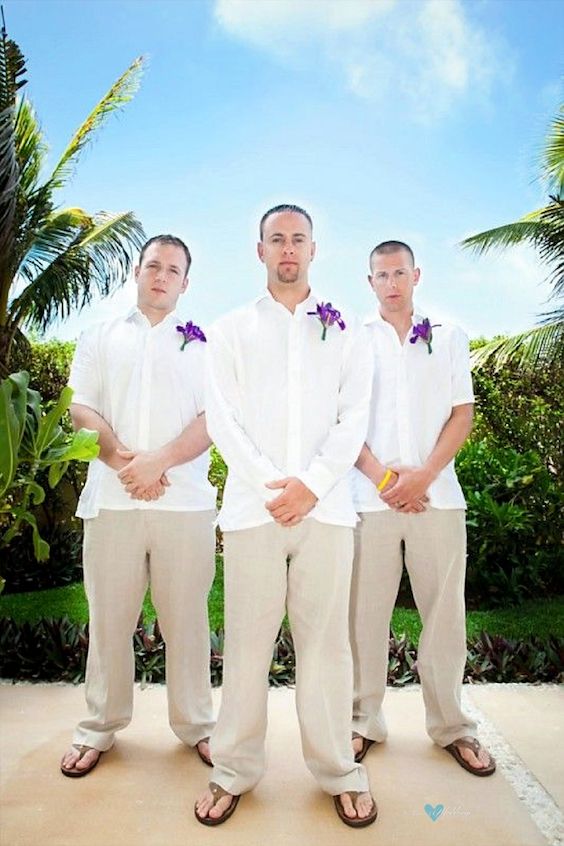
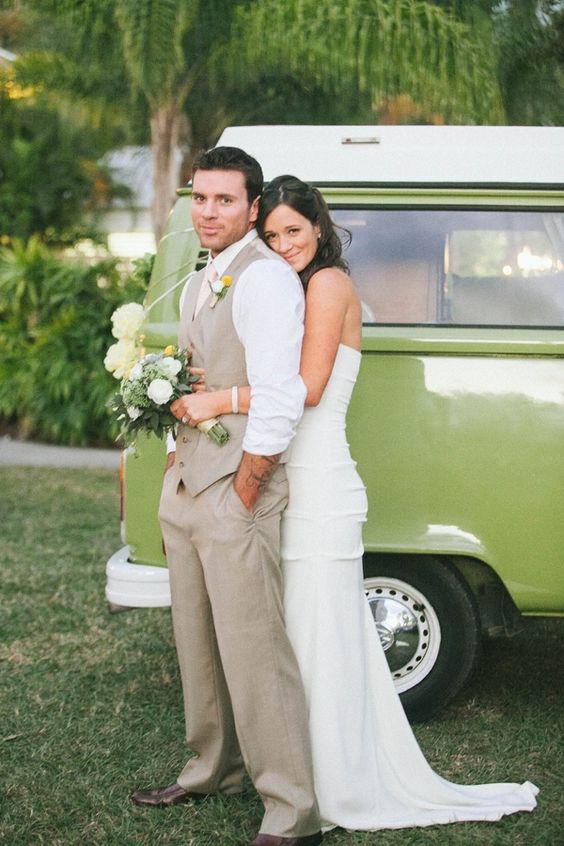


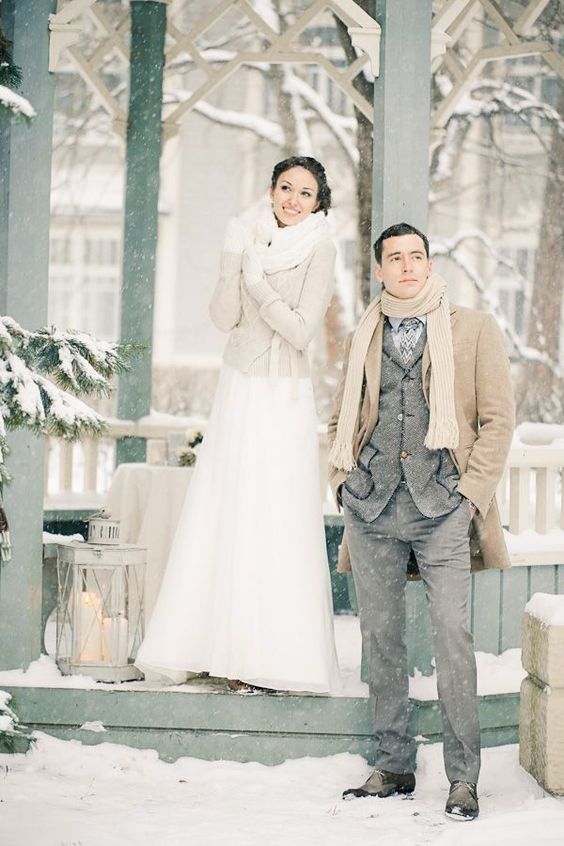










Leave a Reply
Want to join the discussion?Feel free to contribute!